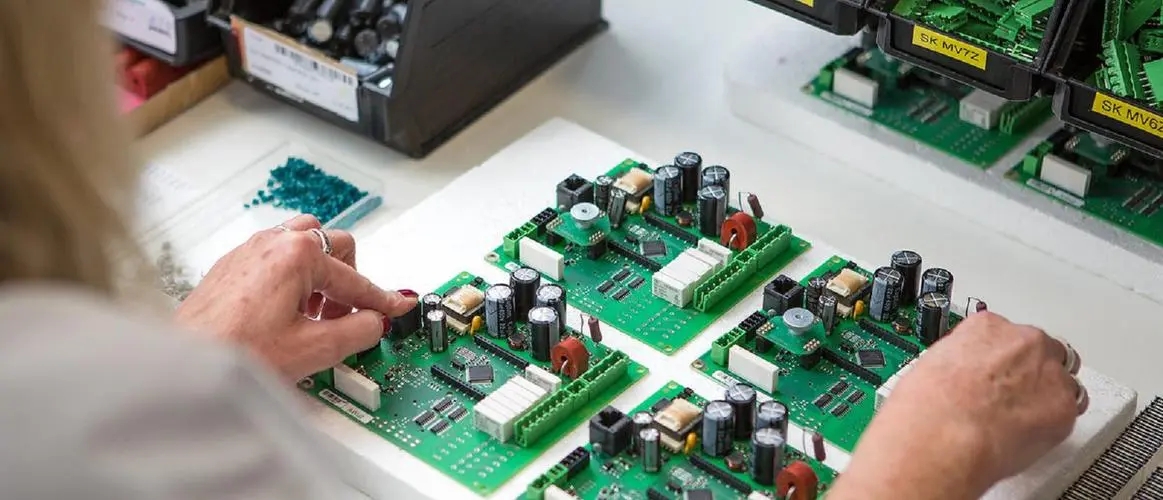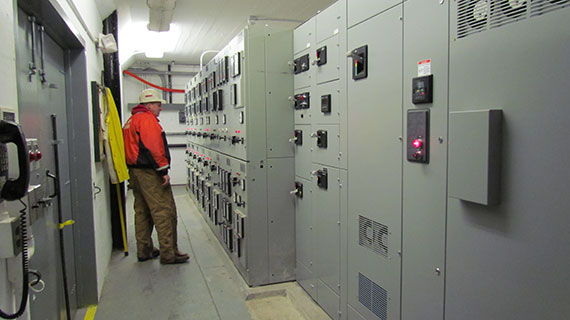소식
Comparing Modular and Non-modular Power Supplies: Which is Right for You?
저자: ZYG 전원 모듈 Time: 2023-10-20
When building a computer or upgrading its components, one crucial consideration is the power supply unit (PSU). The PSU is responsible for converting AC power from the wall outlet into DC power that the computer’s components can utilize. It provides a steady and reliable power source to ensure the stability and longevity of your computer system.
When it comes to choosing a power supply unit, one important factor to consider is whether to opt for a modular or non-modular design. Each has its own advantages and disadvantages, and understanding them can help you make an informed decision.
First, let’s define what modular and non-modular power supplies are. A non-modular power supply comes with a fixed set of cables permanently attached to the PSU. These cables supply power to the different components of the computer, such as the motherboard, CPU, and graphics card. On the other hand, a modular power supply allows you to detach and attach cables as needed. This provides flexibility in managing cable clutter and optimizing airflow within the computer case.
One major advantage of non-modular power supplies is their lower cost compared to modular options. Since they come with fixed cables, the manufacturing process is simpler and cheaper. Non-modular PSUs are also generally easier to install, as there is no need to connect or disconnect cables. This makes them a suitable choice for beginners or those on a tight budget.
However, non-modular power supplies often suffer from cable clutter. With all the cables permanently attached, it can be challenging to manage them neatly within the computer case. This can obstruct airflow, leading to increased temperatures and potential performance issues. Additionally, the excess cables may not be used in smaller builds, causing unnecessary clutter and reducing overall aesthetics.
Modular power supplies, on the other hand, offer greater flexibility and modularity. They come with detachable cables that can be connected as needed, eliminating cable clutter and allowing for better cable management. This results in improved airflow and lower temperatures, enhancing the overall performance and lifespan of the computer components.

Another advantage of modular power supplies is their customization potential. Since you can choose which cables to use, you can ensure that your computer receives the exact power it needs. This is particularly important for high-performance systems, where different components may require varying power requirements. Additionally, modular power supplies are often favored by enthusiasts and those who prioritize aesthetics, as they provide a cleaner and more organized look to the computer case.
However, modular power supplies do come at a higher cost compared to non-modular options. The additional manufacturing and design complexities contribute to the increased price. Furthermore, the process of connecting the detachable cables may be more time-consuming, especially for beginners or those inexperienced with computer building.
When choosing between modular and non-modular power supplies, it ultimately comes down to your specific needs and preferences. If you are on a tight budget or prefer simplicity and ease of installation, a non-modular power supply may be the right choice for you. However, if you prioritize cable management, airflow optimization, and customization options, a modular power supply would be a more suitable option. Consider your budget, experience level, and the specific requirements of your computer system to make an informed decision.
이전의: Fully Modular 650W Power Supply: The Ultimate Solution for Efficient and Seamless Power Management
다음: Module Power Supply: Ensuring Reliable and Efficient Electrical Power Delivery
관련 정보
-
2023-8-31
The Electrifying Power Series: Unleashing the Potential of Electricity
Introduction Electricity is an integral part of our lives, powering our homes, industries, and transportation systems. It is a form of energy that has revolutionized the way we live and has become the backbone of modern society. In this article, we will explore the electrifying power series, which aims to unleash the full potential of electricity. Chapter 1: The History of Electricity To understand the potential of electricity, we must first delve into its history. The discovery of electricity dates back to ancient times, with the observation of static electricity by the Greeks and the invention of the Leyden jar by a Dutch physicist in the 18th century. However, it was not until the late 19th century that electricity became...
세부 정보보기 -
2023-8-28
AC/DC Power Supply Module: Efficient and Reliable Solution for Various Applications
Introduction The demand for reliable and efficient power supply solutions has never been higher. Whether it is for industrial automation, telecommunications, or consumer electronics, a stable and efficient AC/DC power supply module is crucial to ensure the uninterrupted operation of these applications. This article aims to explore the benefits and applications of AC/DC power supply modules and highlight their importance in various industries. 1. What is an AC/DC Power Supply Module? An AC/DC power supply module, also known as a power converter, is an electronic device that converts alternating current (AC) into direct current (DC). It acts as a bridge between the power grid and electronic devices, providing a stable and regulated power source. These modules are typically compact and...
세부 정보보기 -
2023-8-10
The Electric Power Series: Empowering English Learners
Learning English as a second language can be a daunting task for many individuals. The complexities of grammar rules, pronunciation, and vocabulary can often make it seem like an insurmountable challenge. However, with the advent of technology, learning English has become more accessible and engaging than ever before. One such innovative approach is the Electric Power series, a comprehensive online learning platform designed specifically for English learners. The Electric Power series aims to empower English learners by providing them with a range of interactive resources and tools to enhance their language skills. Through a combination of videos, exercises, and quizzes, learners can practice and reinforce their understanding of various language concepts. The series covers all aspects of English proficiency, including...
세부 정보보기 -
2024-12-26
AC and DC power supply: the poetry of electricity in modern life
In the evolution of human civilization, electricity is undoubtedly one of the most brilliant pearls. It not only lights up the night, but also drives the progress of science and technology, making our lives more colorful. In the world of electricity, AC and DC power supply exists as a cornerstone, with its unique charm and wide application fields. 1. The long-standing journey of electricity Looking back on history, electricity was first known and used by people in the form of direct current (DC). From the earliest voltaic battery to Edison's electric light, DC power supply has become the first choice for early power applications with its stable and reliable characteristics. However, with the growing demand for electricity, AC power supply...
세부 정보보기 -
2023-6-17
Car Outlet Converter: The Ultimate Solution for Powering Your Devices on the Go
In today's fast-paced world, staying connected is more important than ever. Whether you're on a road trip or simply commuting to work, having access to power for your devices is essential. This is where a car outlet converter comes in handy. A car outlet converter is a device that allows you to plug in and power your electronic devices while on the go. With a car outlet converter, you can charge your phone, tablet, laptop, or any other device that requires power. This makes it an essential tool for anyone who spends a lot of time in their car. One of the biggest advantages of a car outlet converter is that it provides a constant power source. This means that...
세부 정보보기 -
2023-5-17
110V AC to 12V DC Converter: Converting High Voltage to Low for Efficient Power Usag
Introduction In today's world, efficient power usage has become a priority because of the scarcity of resources and the need to reduce energy consumption. One of the ways to achieve this is through the use of a converter that can change high voltage to a lower voltage that can be used by electronic devices. This article will explore the 110V AC to 12V DC converter and how it can be used to convert high voltage to low for efficient power usage. What is a 110V AC to 12V DC Converter? A 110V AC to 12V DC converter is an electronic device that can convert high voltage alternating current (AC) to low voltage direct current (DC). This device is commonly used...
세부 정보보기


















